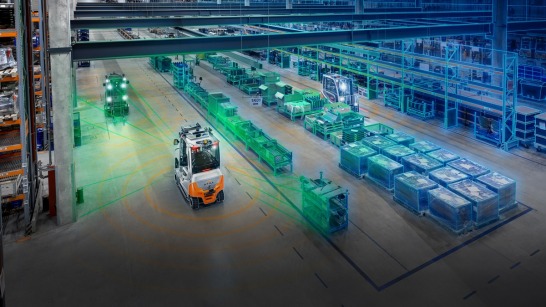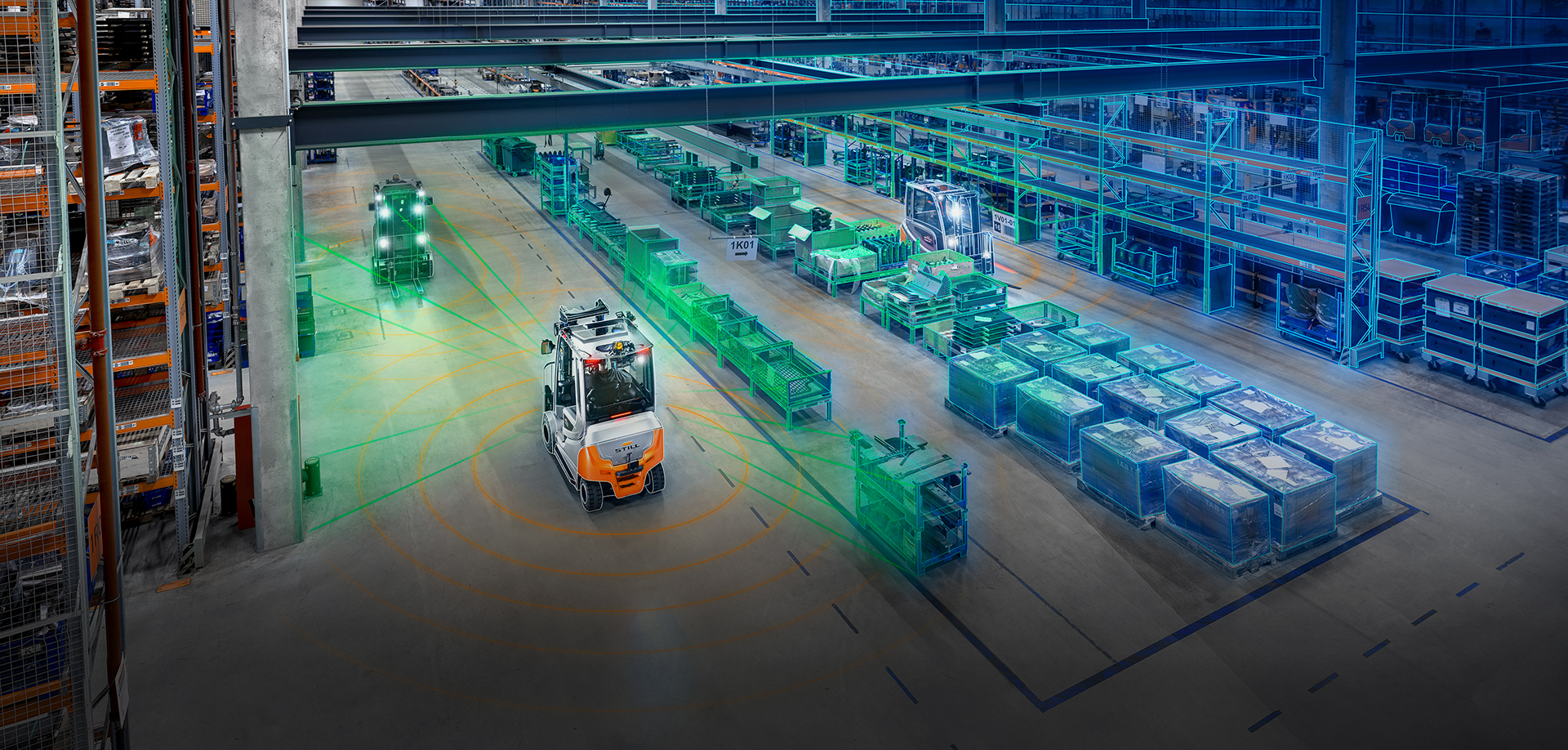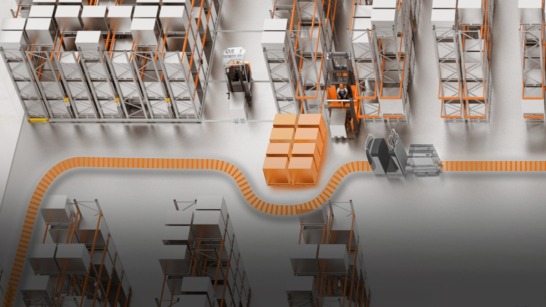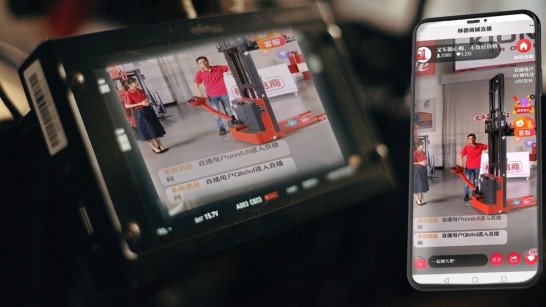He describes the ideal scenario: “In the future, all intralogistics systems and processes will be connected to production processes and will work in perfect harmony. Materials, components, and tools will be supplied at the exact time they are required by means of networked autonomous transportation vehicles that will work together with mobile order picking and handling robots.” Open interfaces and standards, and real-time wireless data transfer will guarantee complete connectivity of all systems, machines, and devices. In addition, a central, overarching control and steering intelligence will oversee everything and optimize logistics and material flow processes in the factory and manage all machines and devices including tasks such as route planning, loading strategies, task assignment, and fleet management for collaborative robots. At least that’s the theory. Putting this into practice is the challenge facing the R&D divisions at the KION Group and its brands.
Important Research Work for the Factory of the Future
The KION Group and its brands have already reached a number of important milestones thanks to their comprehensive portfolio of autonomous transportation vehicles , mobile order picking devices and robots, the fully-networked digital truck, and its comprehensive expertise in the areas of software and simulation . But a lot more R&D work has to be completed before the vision for the future mentioned above will form part of our daily lives, and for new standards for Industry 4.0 to be defined. In addition, digitalization of industrial production is a complex process and is something that has been being worked on already for a number of years. Transformation to fully digitalized production is closely linked to continuous development. Already, there have been lots of successes, but also lots of challenges and questions that remain unanswered. We are still missing a number of important tools to be able to define new industrial standards and implement these successfully. This is where the following research initiatives that the KION Group is working on in collaboration with well-renowned partners from industry, academia, and research come in.
KI.Fabrik: Understanding the Requirements for Robot-Human Collaboration Better
Robotics plays a major role in Industry 4.0. Up until now, robots in industrial environments have worked behind protective fences. This, however, is set to change, as The Technical University of Munich is demonstrating with a research project on the future vision of the Smart Factory. The initial plan is for a four-year joint research and development project, with the option of extending the project in multiple phases by up to ten years. The KION subsidiary Linde Material Handling is involved in the project, which is being led by the MIRMI (Munich Institute of Robotics and Machine Intelligence of The Technical University of Munich), as a consortium partner alongside industry partners such as BMW and many other companies. The goal of the project is to see autonomous, multifunction robots working directly or over long distances in a collaborative manner with human colleagues by means of artificial Intelligence (AI).
The KION subsidiary Linde Material Handling is contributing its intralogistics experience within the futuristic production environment to the research project. The project is currently in the initial phase whereby different environments (e.g. assembly and production areas or a warehouse) and application scenarios are being outlined and the associated technical requirements are being developed.






